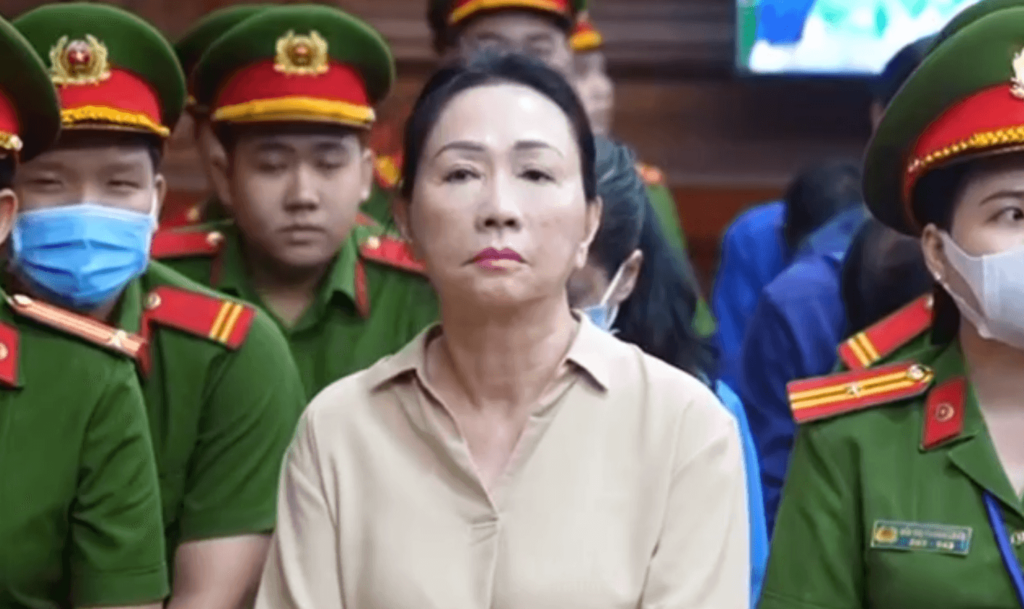In a case that has reverberated throughout Vietnam and beyond, Truong My Lan, a prominent figure in the country’s real estate sector, has been handed a death sentence for orchestrating one of the most staggering bank frauds in history. The trial, which unfolded over weeks of intense scrutiny, shed light on the intricate web of deception woven by Lan, resulting in the misappropriation of an astounding $44 billion from Saigon Commercial Bank (SCB).
As the verdict was delivered, it sent shockwaves across the nation, underscoring the severity of financial crimes and the unwavering commitment of Vietnamese authorities to uphold justice. Let’s delve into the details of this landmark case and the profound implications it holds for Vietnam’s legal landscape and efforts to combat fraud.
Vietnamese Property Tycoon Sentenced to Death for $44bn Bank Fraud
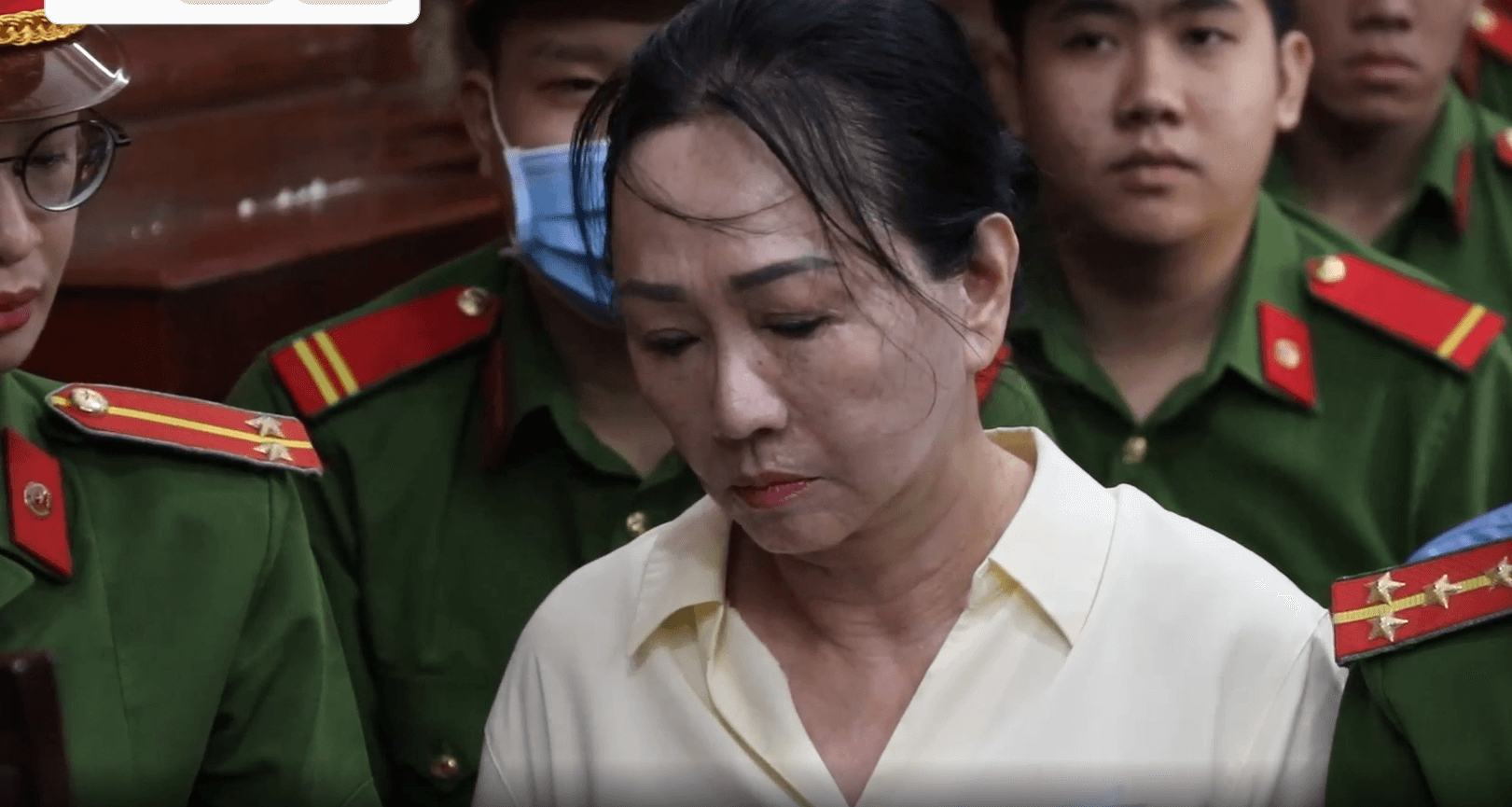
Trial Verdict: Death Sentence for Truong My Lan
In a historic ruling that has reverberated throughout Vietnam and beyond, Truong My Lan, a prominent figure in the country’s real estate sector, has been condemned to death for her central role in orchestrating one of the most colossal bank frauds in history. The magnitude of this scheme is truly staggering, with an estimated $44 billion siphoned from Saigon Commercial Bank (SCB), sending shockwaves across the nation and prompting widespread concern and scrutiny.
The scale of Lan’s fraudulent activities is unprecedented, marking a dark chapter in Vietnam’s financial history. Her calculated manipulation of loan applications and collateral values over a period of several years underscores the audacity and complexity of her scheme. By exploiting vulnerabilities within SCB’s systems and processes, Lan was able to deceive and defraud on an unparalleled scale, leaving a trail of devastation in her wake.
The impact of Lan’s actions extends far beyond the financial realm, striking at the heart of trust and integrity within Vietnam’s banking sector. The revelation of such a brazen and far-reaching fraud has shaken public confidence in the country’s financial institutions, prompting calls for greater transparency, oversight, and accountability.
Moreover, Lan’s case has sparked widespread debate and reflection on the broader societal implications of white-collar crime. It serves as a stark reminder of the potential consequences of unchecked greed and corruption, highlighting the urgent need for stronger regulatory measures and ethical standards to safeguard against similar abuses in the future.
As Vietnam grapples with the aftermath of this unprecedented fraud, the verdict handed down in Lan’s case carries profound significance. It sends a clear message that those who engage in such egregious acts of financial misconduct will be held to account, regardless of their status or influence. It also underscores the commitment of Vietnamese authorities to uphold the rule of law and protect the interests of the public.
Ultimately, Lan’s conviction serves as a sobering reminder of the importance of vigilance and integrity in the pursuit of financial prosperity. It is a landmark moment in Vietnam’s ongoing battle against corruption and financial crime, and a testament to the resilience and determination of its people to build a more just and equitable society.
Prosecution’s Case: Mastermind of Deception
The trial, marking a pivotal moment in Vietnam’s legal history, commenced on March 19th, amidst heightened anticipation and scrutiny from the public and legal experts alike. Prosecutors from the People’s Procuracy of Ho Chi Minh City, tasked with presenting the case against Truong My Lan, wasted no time in asserting the gravity of the charges levied against her. With meticulous detail and unwavering resolve, they outlined a litany of offenses, including embezzlement, bribery, and breaches of lending regulations within the banking sector.
The proceedings unfolded against the backdrop of a nation grappling with the fallout of one of the most audacious financial crimes in its history. As prosecutors meticulously pieced together the intricate web of deceit woven by Lan, the courtroom became a stage for the clash between justice and impunity. The weight of the allegations against Lan was palpable, casting a shadow over her once-illustrious reputation in Vietnam’s real estate sector.
Embezzlement, the cornerstone of the prosecution’s case, lay at the heart of Lan’s alleged misdeeds. With a deft hand, she was accused of siphoning billions of dollars from Saigon Commercial Bank (SCB), exploiting weaknesses in its systems and processes to line her own pockets at the expense of depositors and shareholders. The sheer scale of the embezzlement allegations sent shockwaves across the nation, exposing vulnerabilities within Vietnam’s banking sector and raising troubling questions about regulatory oversight and corporate governance.
In addition to embezzlement, Lan faced accusations of bribery, further tarnishing her reputation and undermining public trust in the integrity of Vietnam’s business elite. The prosecution painted a damning picture of a woman willing to trade favors and influence for personal gain, betraying the trust of her colleagues and clients in pursuit of ill-gotten wealth.
Furthermore, Lan stood accused of breaching lending regulations within the banking sector, compounding the severity of her alleged crimes. By manipulating loan applications and collateral values, she was accused of perpetrating a fraud of unprecedented proportions, leaving SCB reeling from the financial fallout.
As the trial progressed, the courtroom became a battleground, with prosecutors and defense attorneys locked in a fierce legal duel. Every piece of evidence presented, every witness called to testify, served to illuminate the complex web of deceit at the heart of Lan’s alleged criminal enterprise.
Ultimately, the trial of Truong My Lan transcended the confines of a courtroom drama, becoming a symbol of Vietnam’s struggle against corruption and financial crime. With the eyes of the nation fixed upon her, Lan’s fate hung in the balance, a stark reminder of the consequences of unchecked greed and impunity in a society striving for justice and accountability.
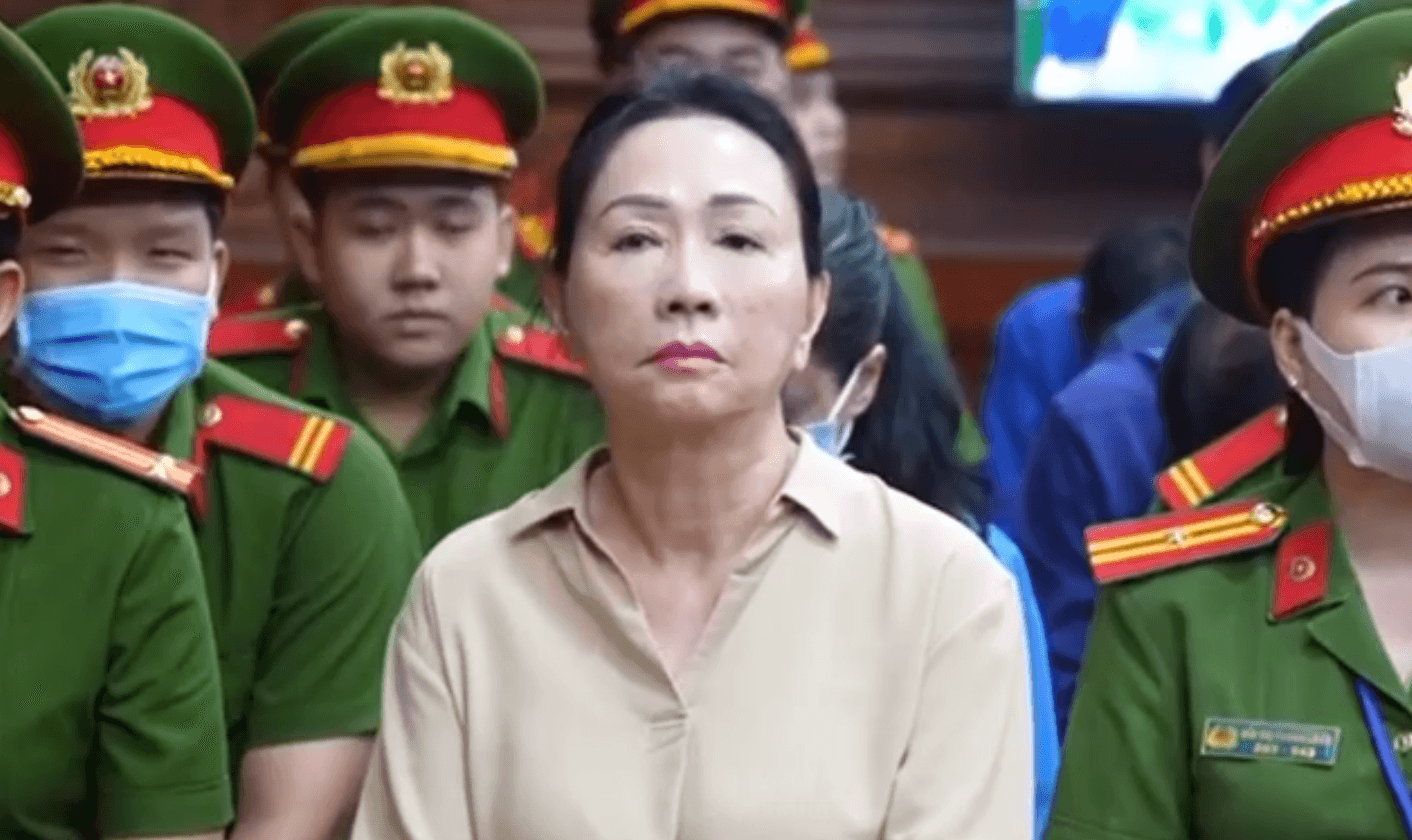
Scheme Details: Fabricated Loans and Inflated Collateral
Prosecutors unveiled a damning case, painting a vivid portrait of Truong My Lan as the mastermind behind an elaborate and meticulously orchestrated scheme that plunged Saigon Commercial Bank (SCB) into chaos. At the heart of this intricate web of deceit were falsified loan applications and inflated collateral values, meticulously crafted to deceive and defraud SCB and its stakeholders.
Lan, portrayed as the architect of this nefarious operation, allegedly exploited vulnerabilities within SCB’s lending practices, exploiting loopholes and bending regulations to her advantage. Over the course of six years, from January 1st, 2012, to December 31st, 2017, Lan’s manipulation of loan applications and collateral values facilitated the extraction of vast sums from SCB, amounting to an unprecedented $44 billion.
The scale of Lan’s alleged deception is truly staggering, representing one of the largest instances of financial fraud in Vietnam’s history. Through a combination of cunning, manipulation, and subterfuge, she is accused of systematically undermining the integrity of SCB’s lending operations, leaving the bank exposed to significant financial risk and its clients vulnerable to exploitation.
The ramifications of Lan’s actions reverberate far beyond the confines of SCB’s balance sheet. The erosion of trust and confidence in Vietnam’s banking sector, once considered a cornerstone of the country’s economic growth, threatens to undermine investor confidence and jeopardize the stability of the financial system.
Moreover, Lan’s alleged crimes strike at the heart of the principles of fairness and equity, undermining the integrity of Vietnam’s legal and regulatory framework. By subverting the rules and exploiting vulnerabilities within the system, she is accused of perpetuating a culture of corruption and impunity that threatens to erode the fabric of Vietnamese society.
As prosecutors meticulously laid out their case, piece by piece, the full extent of Lan’s alleged wrongdoing came into sharp focus. Each falsified document, each inflated valuation, served as a damning indictment of her alleged greed and deceit, leaving no doubt as to the severity of her alleged crimes.
As the trial unfolds, the eyes of the nation are fixed on the courtroom, awaiting justice to be served. For Truong My Lan, once a prominent figure in Vietnam’s real estate sector, the stakes could not be higher. If found guilty, she faces the prospect of the ultimate penalty, a stark reminder of the consequences of unchecked greed and corruption in a society striving for transparency and accountability.
Financial Fallout: Staggering Losses and Violations
Lan’s actions, as detailed by prosecutors, inflicted devastating financial losses totaling a staggering 64.6 trillion dong, representing one of the most severe breaches of lending regulations in Vietnamese history. This colossal sum, equivalent to billions of dollars, underscores the gravity of Lan’s alleged crimes and the profound impact they had on Saigon Commercial Bank (SCB) and its stakeholders.
But the extent of Lan’s deception didn’t end there. Between February 9th, 2018, and October 7th, 2022, she allegedly continued her fraudulent activities unabated, orchestrating the submission of a staggering 916 fraudulent loan applications. Through these nefarious means, Lan is accused of misappropriating an astronomical 304 trillion dong from SCB, further exacerbating the bank’s financial woes and leaving a trail of devastation in her wake.
Moreover, the repercussions of Lan’s actions extended beyond the immediate loss of funds. The interest losses incurred as a result of her fraudulent activities amounted to a staggering 129 trillion dong, compounding the financial strain on SCB and exacerbating the already dire consequences of Lan’s alleged crimes.
The sheer scale of Lan’s alleged misdeeds is truly breathtaking, representing a brazen and audacious affront to the principles of integrity and transparency within Vietnam’s banking sector. By systematically circumventing lending regulations and exploiting vulnerabilities within SCB’s systems and processes, she is accused of perpetrating one of the most egregious instances of financial fraud in Vietnamese history.
As prosecutors meticulously presented their case, painting a damning portrait of Lan as the mastermind behind this elaborate scheme, the full extent of her alleged wrongdoing became painfully clear. Each fraudulent loan application, each misappropriated dong, served as a stark reminder of the corrosive impact of unchecked greed and corruption within Vietnam’s financial system.
As the trial progresses, the eyes of the nation are fixed on the courtroom, awaiting a verdict that will not only determine Lan’s fate but also send a powerful message about the importance of accountability and transparency in the pursuit of justice. For Lan, once a prominent figure in Vietnam’s real estate sector, the stakes could not be higher. If found guilty, she faces the prospect of severe punishment, serving as a cautionary tale for others who may be tempted to follow in her footsteps.
Defense’s Argument: Contesting Charges and Legal Interpretation
Despite Truong My Lan’s previous philanthropic endeavors and her clean record prior to the events in question, her defense team vigorously challenged the prosecution’s portrayal of her actions during the trial. They presented a multifaceted defense aimed at rebutting the allegations leveled against her and highlighting potential inconsistencies in the prosecution’s case.
Central to the defense’s argument was the assertion that the charges of embezzlement and causing financial losses were legally contradictory. They contended that while Lan may have been involved in certain financial transactions that resulted in losses for SCB, these losses did not necessarily constitute embezzlement. Instead, they argued that any financial losses incurred were the result of legitimate business activities or market fluctuations rather than deliberate criminal actions on Lan’s part.
Furthermore, Lan’s defense team urged the court to reassess her use of collateral as a method of extracting funds from SCB. They argued that Lan’s actions were in line with standard banking practices and that any discrepancies in the valuation of collateral were the result of factors beyond her control, such as changes in market conditions or fluctuations in asset prices.
In mounting their defense, Lan’s legal team sought to portray her as a victim of circumstance rather than a criminal mastermind. They emphasized her previous good character and highlighted her contributions to charitable causes and community development initiatives as evidence of her positive impact on society.
Moreover, they argued that Lan’s role in the alleged fraud had been exaggerated by the prosecution and that she was being unfairly scapegoated for broader systemic issues within SCB and the banking sector as a whole. By shifting the focus away from Lan’s individual actions and towards the wider context in which they occurred, they sought to undermine the prosecution’s case and cast doubt on the validity of the charges against her.
As the trial unfolded, Lan’s defense team continued to vigorously advocate for her innocence, presenting evidence and witness testimony aimed at refuting the prosecution’s allegations and raising doubts about the integrity of the case against her. While the outcome of the trial remains uncertain, Lan’s defense team remains steadfast in their commitment to securing a fair and just resolution to the proceedings, one that accurately reflects the complexities of the case and the nuances of Lan’s involvement.
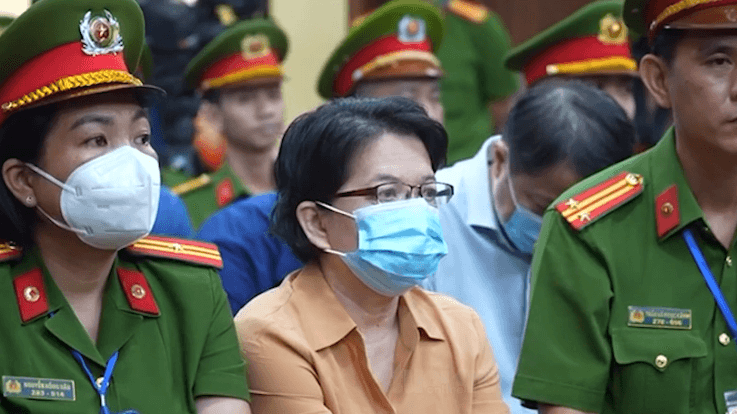
Prosecution’s Rebuttal: Asserting Accountability and Legal Justification
In a fierce rebuttal, the prosecution forcefully countered the defense’s arguments, painting a damning picture of Truong My Lan as a calculated and opportunistic perpetrator of financial fraud. They contended that Lan had systematically exploited Saigon Commercial Bank (SCB) as a financial tool to advance her personal ventures, manipulating collateral assets and bending lending regulations to her advantage.
Central to the prosecution’s case was the assertion that Lan’s actions were not motivated by legitimate business interests, but rather by a desire to enrich herself at the expense of SCB and its stakeholders. They argued that Lan had cynically exploited her position within the bank to orchestrate a series of fraudulent transactions, using SCB’s resources as her own personal piggy bank.
Moreover, the prosecution highlighted the timing of Lan’s acquisition of assets, pointing out that the bulk of her wealth was accumulated post-2012, coinciding with the period of her alleged criminal activities. This, they argued, was clear evidence of Lan’s deliberate intent to defraud SCB and profit from her illicit activities.
By meticulously dissecting Lan’s financial transactions and tracing the flow of funds, the prosecution sought to establish a clear pattern of deception and manipulation. They presented evidence suggesting that Lan had engaged in a series of complex financial maneuvers, including the inflation of collateral values and the submission of fraudulent loan applications, all designed to siphon funds from SCB into her own personal accounts.
Furthermore, the prosecution sought to undermine the defense’s portrayal of Lan as a victim of circumstance, emphasizing instead her central role in orchestrating the fraud. They argued that Lan’s actions were not the result of external pressures or market forces, but rather a deliberate and premeditated attempt to exploit SCB for her own personal gain.
As the trial progressed, the prosecution continued to build their case brick by brick, presenting a compelling narrative of Lan’s alleged criminal activities and highlighting the devastating impact they had on SCB and its stakeholders. With each piece of evidence presented, they sought to reinforce their argument that Lan was not simply an unwitting participant in a larger scheme, but rather the driving force behind it.
Ultimately, the prosecution’s relentless pursuit of justice underscored the seriousness of the charges against Lan and the magnitude of the alleged crimes. As the trial reached its conclusion, the eyes of the nation were fixed on the courtroom, awaiting a verdict that would determine Lan’s fate and send a powerful message about the consequences of financial fraud in Vietnam.
Trial Progress: Intense Exchanges and Ongoing Deliberation
As the trial enters its fifth week, the courtroom remains a battleground where intense exchanges between prosecutors, defense lawyers, and the defendant, Truong My Lan, unfold amidst heightened anticipation and scrutiny. The proceedings have evolved into a dramatic saga, with each session marked by impassioned arguments, sharp rebuttals, and gripping testimonies that captivate the attention of the nation.
At the center of this legal showdown is the prosecution’s relentless pursuit of justice, as they continue to hammer home the gravity of Lan’s alleged crimes and her pivotal role in orchestrating the fraud that rocked Saigon Commercial Bank (SCB) to its core. With unwavering determination, prosecutors leave no stone unturned as they meticulously present evidence, dissect financial transactions, and scrutinize Lan’s every move in their quest for accountability.
Emphasizing Lan’s central role in the fraud, prosecutors spare no effort in portraying her as the mastermind behind a sophisticated and far-reaching scheme that left SCB reeling from staggering financial losses. With a laser focus on establishing Lan’s culpability, they paint a compelling narrative of deception and manipulation, highlighting her calculated exploitation of SCB’s resources for personal gain.
But the prosecution’s pursuit of justice extends beyond securing a conviction; it also seeks to ensure restitution for the victims of Lan’s alleged crimes. With unwavering resolve, prosecutors advocate for the repayment of over 677 trillion dong to SCB, underscoring the need for Lan to be held fully accountable for the devastation she wrought upon the bank and its stakeholders.
Meanwhile, Lan’s defense team mounts a spirited defense, vigorously challenging the prosecution’s portrayal of her actions and highlighting potential inconsistencies in the case against her. With a blend of legal acumen and strategic maneuvering, they seek to cast doubt on the validity of the charges leveled against Lan and undermine the prosecution’s narrative of guilt.
As the trial unfolds, the stakes could not be higher for all parties involved. For Lan, once a prominent figure in Vietnam’s real estate sector, the outcome of the trial will determine her fate and shape her legacy. For prosecutors, it represents a pivotal opportunity to deliver justice and hold accountable those responsible for perpetrating financial crimes of such magnitude.
Ultimately, as the trial inches closer to its conclusion, the eyes of the nation remain fixed on the courtroom, awaiting a verdict that will not only determine Lan’s guilt or innocence but also serve as a testament to Vietnam’s commitment to upholding the rule of law and combating financial corruption.
Legal Precedent: Vietnam’s Commitment to Combatting Financial Crimes
The landmark verdict in Truong My Lan’s trial not only marks a significant milestone in Vietnam’s legal history but also serves as a powerful testament to the country’s unwavering determination to combat financial crimes and uphold the integrity of its financial system. By holding Lan accountable for her alleged actions and delivering a verdict that reflects the severity of the offenses committed, Vietnam sends a clear and unequivocal message: those who engage in fraudulent activities will face the full force of the law, regardless of their status or influence.
The trial of Truong My Lan has captured the attention of the nation and beyond, shining a spotlight on the pervasive issue of financial corruption and the urgent need for robust measures to address it. With billions of dollars misappropriated from Saigon Commercial Bank (SCB) and widespread implications for the banking sector and society at large, the case has laid bare the devastating impact of white-collar crime on Vietnam’s economy and reputation.
By securing a conviction and imposing a harsh penalty, Vietnam sets a precedent for future cases involving similar offenses, sending a clear message that financial crimes will not be tolerated and that perpetrators will be held accountable to the fullest extent of the law. This landmark verdict serves as a deterrent to would-be offenders, signaling that the consequences of engaging in fraudulent activities far outweigh any potential gains.
Moreover, the trial underscores Vietnam’s commitment to upholding the rule of law and ensuring that justice is served, irrespective of the complexities or challenges involved. It demonstrates the government’s resolve to tackle corruption and promote transparency, accountability, and good governance in all sectors of society.
Furthermore, the verdict sends a strong signal to international investors and stakeholders, reaffirming Vietnam’s commitment to creating a fair and equitable business environment conducive to sustainable economic growth and development. By addressing financial crimes head-on and holding perpetrators accountable, Vietnam enhances its reputation as a reliable and trustworthy partner on the global stage.
In conclusion, the landmark verdict in Truong My Lan’s trial represents a defining moment in Vietnam’s ongoing battle against financial corruption. It reaffirms the government’s commitment to combatting financial crimes, sets a precedent for future cases, and underscores the country’s dedication to upholding the rule of law and promoting transparency and accountability.
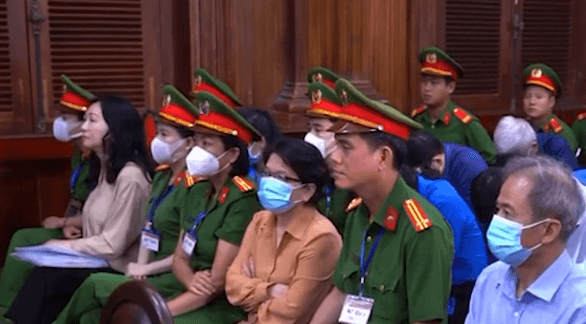
Conclusion – Vietnamese Property Tycoon Sentenced to Death for $44bn Bank Fraud
In conclusion, the trial of Truong My Lan, resulting in her condemnation to death for orchestrating one of the largest bank frauds in history, marks a watershed moment in Vietnam’s legal landscape. The verdict underscores the nation’s unwavering commitment to combat financial crimes and ensure that perpetrators face the consequences of their actions. It sets a precedent for future cases involving similar offenses, sending a clear message that corruption will not be tolerated, and justice will be served.
The trial has not only highlighted the devastating impact of financial corruption on Vietnam’s economy and reputation but also showcased the government’s determination to uphold the rule of law and promote transparency and accountability. By addressing white-collar crime head-on and holding individuals accountable, Vietnam strengthens its position as a reliable and trustworthy partner on the global stage, fostering a fair and equitable business environment conducive to sustainable economic growth and development.
As the nation reflects on this landmark verdict, it serves as a reminder of the importance of vigilance and diligence in safeguarding the integrity of financial institutions and ensuring the well-being of society at large. It is a testament to Vietnam’s resilience and determination to overcome challenges and build a brighter future for all its citizens.
See other news: Teerockin – Blog
Follow X

